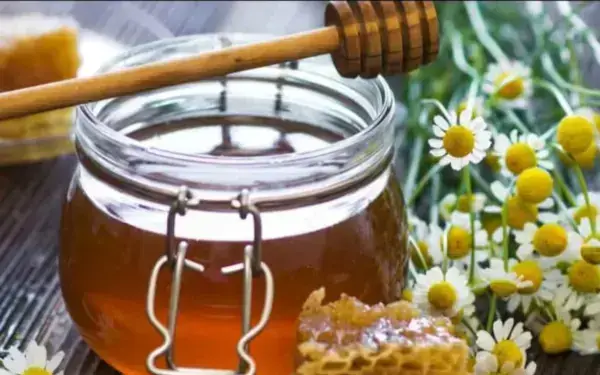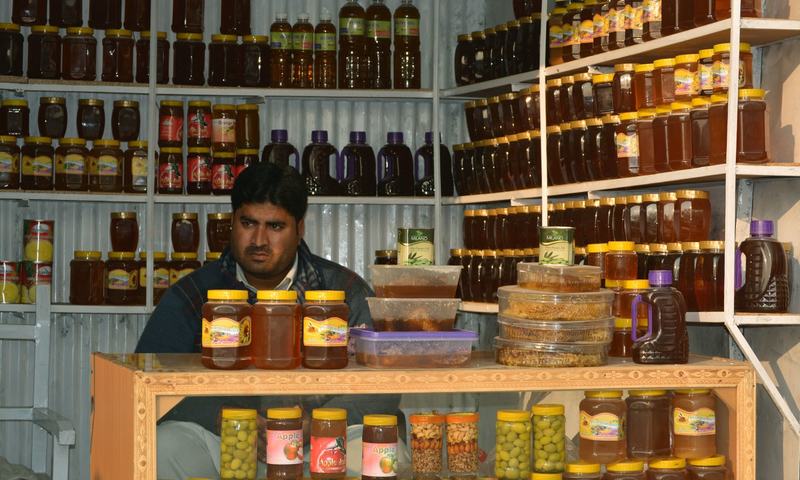Mielado – From Spanish Monasteries to Global Cuisine!
Mielado is a luxurious honey syrup with a rich history and diverse applications. Originating from ancient civilizations, this sweet treat has evolved over centuries to become a staple in both traditional and modern cuisines.
Celebrated for its unique flavor and versatility, Mielado is more than just a sweetener—it’s a symbol of cultural heritage and culinary innovation. Discover the fascinating journey of Mielado and explore its impact on global cuisine.
The Origins of Mielado

Ancient Beginnings
Mielado, often referred to as a honey syrup, has its roots deeply embedded in ancient civilizations. The origins of Mielado can be traced back to the early use of honey, which was revered by ancient cultures such as the Egyptians, Greeks, and Romans. Honey was not only a primary sweetener but also served as a valuable commodity in trade and religious rituals.
In ancient Egypt, honey was used in religious ceremonies and as a preservative for mummies. Similarly, Greek and Roman societies utilized honey in various culinary and medicinal applications. The process of refining honey into a syrup-like consistency began during these early periods, laying the groundwork for the development of Mielado.
Evolution Over Centuries
As civilizations advanced, so did the methods of honey processing. By the Middle Ages, the art of transforming honey into syrup-like substances had become more refined. Monastic communities in Europe, particularly in Spain, played a pivotal role in perfecting the techniques of honey extraction and syrup production.
These monks developed specialized methods to produce a thicker, more concentrated form of honey, which evolved into what we now recognize as Mielado.During the Renaissance, the popularity of Mielado spread beyond Europe.
Explorers and traders introduced this sweet syrup to the Americas, where it began to be integrated into local culinary traditions. Over the centuries, Mielado has undergone various transformations, influenced by regional ingredients and techniques, resulting in the diverse range of Mielado products available today.
Also Read: Skşi – Your Ultimate Guide to Local Attractions and Deals!
Cultural Significance of Mielado
Spain: The Heartland of Mielado
Spain holds a central place in the history of Mielado. The tradition of making this sweet syrup can be traced back to Spanish monasteries, where monks refined the craft of honey syrup production. These early producers developed unique techniques that contributed to the distinctive flavor and texture of Spanish Mielado.
In Spain, Mielado is more than just a sweetener; it is an integral part of the country’s culinary heritage. It is used in a variety of traditional dishes, from pastries to savory items.
Spanish desserts such as “tarta de miel,” a honey cake, and “pan de miel,” a honey bread, showcase the versatility and importance of Mielado in Spanish cuisine. Additionally, Mielado is often used as a topping for cheeses and as an ingredient in marinades and sauces.
Latin America: A Sweet Legacy

Mielado also holds significant cultural importance in Latin America. The syrup is deeply ingrained in the culinary traditions of countries like Mexico, Argentina, and Colombia. Each country has its unique variation of Mielado, reflecting local ingredients and tastes.
In Mexico, Mielado is used in traditional sweets like “buñuelos,” deep-fried dough pastries soaked in honey syrup. Similarly, in Argentina, Mielado is featured in “panal,” a honeycomb-shaped dessert that is enjoyed during special occasions and festivities.
The use of Mielado in Latin American cuisine symbolizes hospitality and cultural heritage, making it a cherished ingredient in family gatherings and celebrations.
Global Reach and Influence
As global interest in diverse cuisines has grown, so has the appeal of Mielado. Its unique flavor and texture have captured the attention of chefs and food enthusiasts worldwide. Mielado’s versatility allows it to be used in a variety of dishes, from gourmet desserts to savory glazes.
In recent years, Mielado has found its way into international culinary circles, appearing in upscale restaurants and food festivals. Its influence can be seen in fusion cuisine, where traditional Mielado recipes are combined with global flavors to create innovative dishes.
Culinary Uses of Mielado
Traditional Recipes
Mielado has a rich history of use in traditional recipes, especially in Spanish and Latin American cuisines. In Spain, Mielado is a key ingredient in classic desserts like “tarta de miel,” a honey cake that combines the sweetness of Mielado with the richness of traditional cake recipes.
“Pan de miel,” another popular Spanish treat, is a honey bread that highlights the syrup’s ability to enhance baked goods.In Latin America, Mielado is used in a variety of traditional sweets and desserts. “Buñuelos,” for example, are deep-fried pastries soaked in Mielado, creating a crispy exterior and a sweet, sticky interior.
“Panal,” a honeycomb dessert, showcases Mielado’s versatility and its role in celebrating special occasions. These traditional recipes demonstrate the integral role of Mielado in cultural and culinary practices.
Also Read: www socceragency.net media – Discover Soccer News!
Modern Innovations
Contemporary chefs are exploring new ways to use Mielado in modern cuisine. Its unique flavor profile makes it a versatile ingredient in both sweet and savory dishes. For example, Mielado can be drizzled over gourmet cheeses to enhance their flavor or used as a glaze for meats to add a touch of sweetness and complexity.
Innovative recipes incorporating Mielado include desserts like honey-infused ice cream and Mielado-glazed donuts. The syrup is also being used in savory applications, such as in marinades for grilled vegetables or as a finishing touch for roasted meats. These modern innovations highlight Mielado’s adaptability and its potential to elevate a wide range of dishes.
Beverages and Beyond
Mielado’s versatility extends to beverages as well. It can be used to sweeten teas, cocktails, and smoothies, offering a natural alternative to refined sugars. In Spain, Mielado is often added to “sidra,” a traditional cider, to enhance its flavor profile. In Latin America, Mielado finds its way into refreshing drinks like honey-sweetened lemonade and various syrups used in cocktails.
The use of Mielado in beverages not only adds a touch of sweetness but also imparts a unique flavor that complements a variety of drinks. Whether used in traditional recipes or modern concoctions, Mielado’s role in beverages reflects its versatility and appeal.
Health Benefits of Mielado

Nutritional Value
Mielado offers several nutritional benefits, making it a healthier alternative to refined sugars. It is rich in natural sugars, which provide a quick source of energy. Additionally, Mielado contains trace amounts of vitamins and minerals, including B vitamins, potassium, and calcium. These nutrients contribute to overall health and well-being.
While Mielado should be consumed in moderation, its natural composition makes it a preferable option compared to artificial sweeteners and refined sugars. Its unique flavor also allows for a reduced quantity to be used in recipes, which can further support a balanced diet.
Medicinal Uses
Historically, Mielado has been used for its medicinal properties. Ancient cultures recognized its antimicrobial and anti-inflammatory effects, using it to treat various ailments. In traditional medicine, Mielado has been employed to soothe sore throats, improve digestion, and support immune health.
The syrup’s medicinal uses are attributed to its natural compounds, which have been shown to have beneficial effects on health. For example, Mielado’s antimicrobial properties can help fight infections, while its anti-inflammatory effects may aid in reducing inflammation and promoting overall wellness.
Also Read: Pokiç – A Diverse Collection of Free Games!
Modern Research
Recent scientific studies are exploring the health benefits of Mielado in more detail. Research has identified potential antioxidant properties in Mielado, which may contribute to reducing the risk of chronic diseases such as heart disease and cancer. Additionally, studies are investigating the syrup’s role in supporting digestive health and boosting the immune system.
As interest in natural remedies and holistic health grows, Mielado is gaining recognition for its potential health benefits. Ongoing research continues to uncover the ways in which this sweet syrup can contribute to a healthy lifestyle.
Economic Impact of Mielado

Local Honey Production
The production of Mielado has a significant impact on local economies, particularly in regions known for honey farming. Beekeepers and local producers play a crucial role in supplying high-quality honey and Mielado. This local production supports small businesses, preserves traditional practices, and contributes to the sustainability of honey farming.
In areas where Mielado is produced, beekeeping provides a source of income and supports rural communities. The economic benefits extend beyond honey production, as the cultivation of bees and honey contributes to biodiversity and environmental health.
Global Trade
The global trade of Mielado reflects its growing popularity and demand. As more consumers and chefs discover the unique qualities of Mielado, international markets have become increasingly interested in importing this sweet syrup.
The global trade of Mielado supports local economies and fosters the exchange of culinary traditions between regions.
Export markets for Mielado are expanding, with countries around the world importing the syrup for use in various culinary applications. This international trade helps promote the global appreciation of Mielado and supports the livelihoods of producers and beekeepers.
Also Read: Jesse Powell Cause of Death – Unraveling the Mystery!
Sustainability and Environmental Impact
Sustainability is a key consideration in honey production and Mielado manufacturing. Efforts are being made to ensure that Mielado production supports environmental conservation and bee welfare.
Sustainable practices in beekeeping, such as organic farming and responsible honey harvesting, are essential for maintaining healthy ecosystems and preserving bee populations.
Environmental initiatives focus on reducing the carbon footprint of honey production, supporting biodiversity, and promoting ethical practices in the industry. By prioritizing sustainability, Mielado producers can contribute to environmental protection while ensuring the long-term availability of this valuable ingredient.
FAQs:
1. What is Mielado?
Mielado is a sweet honey syrup with origins in ancient civilizations. It is made by refining honey to achieve a thicker, more concentrated consistency, often used in various culinary applications.
2. How did Mielado originate?
Mielado’s origins trace back to ancient Egypt, Greece, and Rome, where honey was a prized commodity. By the Middle Ages, Spanish monks refined the process of making honey syrup, leading to the development of Mielado.
3. What are some traditional uses of Mielado?
Traditionally, Mielado is used in Spanish desserts like “tarta de miel” (honey cake) and “pan de miel” (honey bread), as well as in Latin American sweets such as “buñuelos” and “panal.”
4. What are the health benefits of Mielado?
Mielado provides natural sugars, vitamins, and minerals, making it a healthier alternative to refined sugars. It has antimicrobial and anti-inflammatory properties and is being studied for its potential antioxidant benefits.
5. How does Mielado impact local and global economies?
Locally, Mielado production supports beekeepers and rural communities. Globally, its trade fosters culinary exchanges and supports local economies, while sustainability efforts ensure environmentally responsible production practices.
Conclusion:
The journey of Mielado from ancient beginnings to its global presence highlights its significance both culturally and economically. Its rich history, diverse culinary applications, and potential health benefits make it a fascinating ingredient in the world of gastronomy. As Mielado continues to influence modern cuisine and trade, its legacy as a sweet and versatile syrup endures. Its cultural roots, health benefits, and economic impact underscore the enduring appeal of Mielado and its role in shaping culinary traditions around the world.
Read More:


![[noblocc] kicked for being afk](https://relictimes.com/wp-content/uploads/2024/11/image-ezgif.com-webp-to-jpg-converter-2024-11-20T140233.477-1.jpg)


![[noblocc] kicked for being afk](https://relictimes.com/wp-content/uploads/2024/11/image-ezgif.com-webp-to-jpg-converter-2024-11-20T140233.477-1-300x200.jpg)








Post Comment